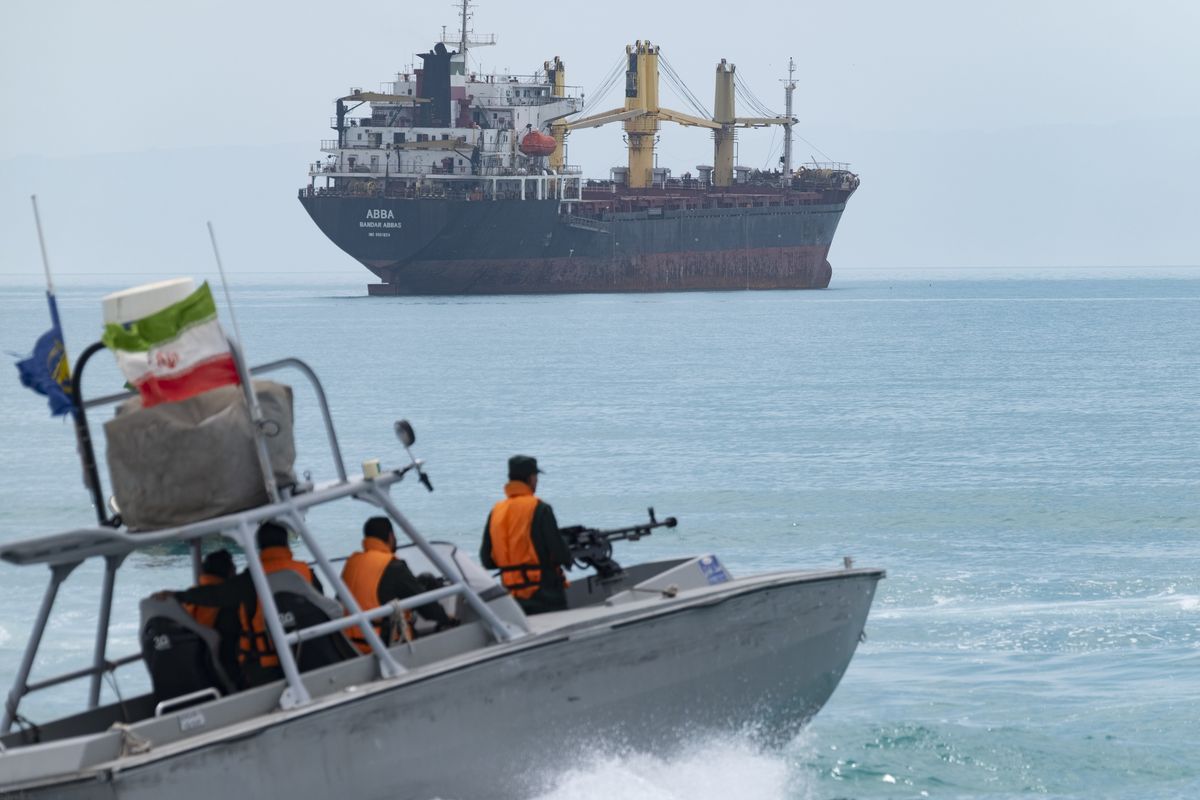The Cipher Brief sat down with S. Samuel Rajiv, Associate Fellow at the Institute for Defence Studies and Analyses based in New Delhi, India, to discuss the deepening relationship between India and Israel. According to Rajiv, “Israel is an important partner for India as it aims to achieve its developmental objective,” and Indian Prime Minister Narendra Modi’s plan to visit Israel this summer is generating anticipation of closer ties.
The Cipher Brief: In what areas (economic, military, political, tourism, science) have Israel and India strengthened ties in recent years?
Samuel Rajiv: India-Israel defense engagement has been on the upswing since the 1999 Kargil War, when it is believed that Israel secretly provided India with military supplies and equipment. India has purchased significant cutting-edge defense equipment from Israel, including the Phalcon AWACS (Airborne Warning and Control System), Barak-I anti-missile defense systems for its warships, aerostat radars for border surveillance, and unmanned aerial vehicles. The two nations are jointly developing Barak-8 missile defense systems for the air force and the navy. The Indian army is also in the process of acquiring Spike anti-tank guided missiles.
While institutional interactions between the armed forces and the national security establishments of both the countries is robust, high-level political interactions have been infrequent. This is true for India’s interactions with the entire Middle East region and not specific to Israel. Israeli Defense Minister Moshe Yaalon visited India in February 2015, but no Indian defense minister has visited Israel to date.
Further, there has not yet been an Indian prime ministerial visit to Israel. Current Indian Prime Minister Narendra Modi is expected to visit Israel this year (reports indicate this could be in June or July, and this visit would be very apt as January 2017 marked the 25th anniversary of the establishment of official diplomatic relations between the two countries. Former Israeli Prime Minister Ariel Sharon was the only Israeli Prime Minister to visit India in 2003 when the Bharatiya Janata Party (BJP) government was in power.
During the reciprocal visits of Presidents Pranab Mukherjee in October 2015 and Reuven Rivlin in November 2016, cooperation in the education, science, and technology sectors received a big boost. Tourism also continues to be a strong point of the bilateral relationship. Israel hopes to attract nearly 100,000 Indian tourists this year, up from about 35,000 in 2014. Some 50,000 Israelis visited India in 2014, about 12 percent of all foreign tourists arriving in India from the Middle East.
Bilateral trade was worth $5 billion in 2015-2016, but both countries expect to double the figure once the free trade agreement currently being negotiated is finalized. Cumulatively over the last decade, defense trade between the two nations has been worth more than $10 billion.
TCB: Why do you think there has been an uptick in cooperation between the two countries? What shared interests do India and Israel have?
SR: Indian-Israel ties have enjoyed non-partisan nurturing by a succession of Indian governments since the two countries established full diplomatic relations in 1992. These relations have been strengthened by subsequent governments. The BJP has always championed closer ties between the two countries, and BJP leaders have time and again (especially while in the opposition between 2004 and 2014) expressed appreciation for the Israeli government’s muscular anti-terrorism and national security policies. After the BJP government headed by Prime Minister Modi took the reins of power in mid-2014, many expect further ballast to be added to the relationship.
India and Israel have many shared interests, including fighting Islamist fundamentalism, preventing the spread of weapons of mass destruction (WMD), and maintaining regional stability. While they may not face common threats (with Israel battling Palestinian terror groups and India battling threats from Pakistan-based organizations), in the Mumbai attacks of November 2008, Israeli citizens were deliberately targeted by cadres from Lashkar-e-Taiba, a terrorist group based in Pakistan.
TCB: What is the relationship between the Israeli and Indian governments, and primarily between Indian Prime Minister Narendra Modi and Israel Prime Minister Benjamin Netanyahu? Do they possess similar viewpoints on world events?
SR: Indian Prime Minister Modi and Israeli Prime Minister Netanyahu have met twice so far - on the sidelines of the United Nations General Assembly in September 2014 and the Paris climate summit in November 2015, and have also talked to each other over the telephone, including when Netanyahu thanked Modi for helping Israeli citizens during the Nepal earthquake of April 2015.
As noted above, India and Israel have shared regional interests, though they may disagree on the best way to achieve some of those interests. On the Iran nuclear issue for instance, India was resolutely opposed to the exercise of a military option to set back Iranian nuclear capabilities as it held that such a step would negatively affect regional stability and the well-being of its 7 million citizens in the diaspora. Both countries share intelligence and best practices to better tackle the threat of radical fundamentalism. India and Israel assiduously cultivate their respective ties with Washington for mutual benefit.
TCB: Where do you see relations between the two countries headed in the short-term?
SR: Israel is an important partner for India as it aims to achieve its developmental objectives. Centers of excellence in agriculture and horticulture established in many Indian states with Israeli support are prime examples of Israeli contributions to India’s growth story. The strategic relationship is expected to strengthen even further as India looks to procure niche technologies and to jointly develop weapons systems as part of its continued effort to modernize its armed forces. The relationship is expected to consolidate in the near-term after the visit of PM Modi.
The views expressed in this article are the author's alone.












